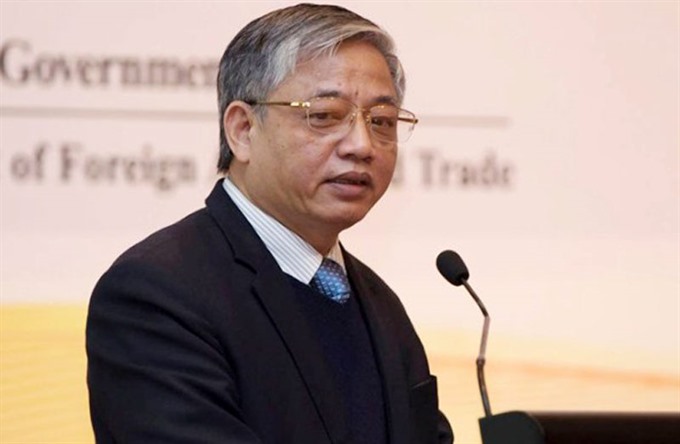.jpg) Opinion
Opinion

Doãn Mậu Diệp, Deputy Minister of Labour, Invalids and Social Affairs, speaks to the newspaper Nhân Dân (The People) newspaper about his ministry’s resolve to do every thing for Vietnamese guest workers abroad
 |
| Doãn Mậu Diệp |
Doãn Mậu Diệp, Deputy Minister of Labour, Invalids and Social Affairs, speaks to Nhân Dân (The People) newspaper about his ministry’s resolve to protect the rights of Vietnamese guest workers abroad.
What should labour export enterprises do to help the guest workers understand their basic legal rights while working in foreign countries?
All enterprises involved in sending guest workers abroad have to organise training courses for their guest workers about their legal rights and responsibilities in accordance with Vietnamese and host laws. During training, enterprises must give lectures on the guest workers’ and the hosts’ rights and responsibilities in observing their signed contracts.
In addition, the Ministry of Labour, Invalids and Social Affairs has developed a few booklets with tips for workers before and while they work abroad. We have also organised special training courses for the exporting companies about their obligations to take actions to prevent and limit risks that might occur to the guest workers while they work abroad.
Will you please further elaborate on the MOLISA’s rules requiring labour exporting enterprises to abide by legal documents on sending guest workers abroad?
Under the Law on Vietnamese Guest Workers and other legal documents, sending guest workers abroad is a conditional business. That is why only enterprises that have met all the country’s legal requirements will be granted licences to send guest workers abroad.
However, some special markets like Japan, Taiwan and others have their own conditions regulating that only Vietnamese Labour Export Enterprises meeting their conditions will be allowed to send guest workers to their countries. That is why MOLISA is in the process of developing regulations and conditions to ensure that only enterprises meeting both Vietnamese and host countries’ conditions will be able to send their guest workers to these markets.
Has the MOLISA adopted measures to support Vietnamese guest workers working in the Middle East, particularly Qatar?
The political situation in Qatar is very tense due to the current crisis between Qatar and other Gulf nations. However, I can say that the socio-economic situation in Qatar remain stable. As we all know, Qatar has a developed economy with huge national reserves. Qatar’s income per capita is on the top of the world, double of that of the US.
However, to protect the legal rights and interests of the almost 2,000 Vietnamese guest workers there, the MOLISA has instructed labour export companies having sent their workers there to take necessary measures to support their guest workers in case they need help. Meanwhile the MOLISA has closely co-operated with the Vietnamese representative office there to update information in order to make timely measures if the situation turns sour. The MOLISA has also instructed the Vietnamese Labour Management Unit in Saudi Arabia and the United Arab Emirates to regularly update the situation in Qatar and report to the MOLISA so that we can give advice to our workers as soon as possible. — VNS